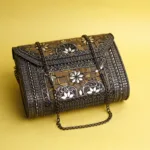Here are some quick tips from our washing experts for cleaning woollens at home
READ THE LAUNDRY CARE LABEL. There are 2 signs that you have to look for what they say:
a. If the laundry tag says- ‘no wash and only dry clean’, this means that the garment might bear a risk of shrinkage or colour bleeding if washed with water. In this case, it is best to give the woollen ( or for that matter any other garment) to the professional dry-cleaners who have proper chemicals to dry wash the garment
b. If the laundry tag bears sign saying the garment can be washed with water as well, these are the following things you should take care of if you wish to clean the woollen at home
- HAND WASH the woollen even if the garment care label specifies that it can be machine washed. Reason for this being, your woollen might start to show bobbles in machine wash after certain washes which will leave the garment unwearable after some time.
- Wash the woollen garment in cold water
- AVOID USING NORMAL DETERGENT. Normal washing detergent make the woollens HARD and cane sometimes cause shrinkage as well. Either use special wool cleaning sops available in the market or use a mild baby shampoo if the garment is not stained much. For a stained woollen garment, it is recommended to give it to professional dry cleaners to avoid damage to cloth by harsh chemicals at home.
- If the colour of the woollen garment is such that there seems to be a chance of colour bleeding, giving it to dry cleaners might reduce the chances of colour bleeding.
When must you dry clean?
“There are some fabrics that react poorly to water like viscose, a type of rayon,” Boyd told us. “Although many rayons can be washed, viscose has been known to shrink to extreme proportions.” Similar fabrics in the rayon family include lyocell (known by the brand name Tencel), modal, and cupro (often branded as Bemberg), although these are usually washable. “The important takeaway about rayon is to follow the care label,” said Young.
Remember, if your item has a blend of fabrics (or two different fabrics, as in a coat with a lining), always clean according to the more finicky one. You may be able to hand wash silk, but since viscose usually requires dry cleaning, you shouldn’t wash a silk-viscose blend at home.
No matter the fabric content, when the label for an item with a decorative finish (such as moiré or pleats) or delicate beading recommends dry cleaning, don’t ignore it—those details are very easy to ruin. If you have something particularly sentimental or fragile, playing it safe may be the better option. “[S]peaking generally, it’s often fine to handwash silk. For very special pieces, you may still want to opt for a dry cleaner,” said Harrington. For particularly filthy or stained items, call the professionals. “If somebody spills red wine all over your suit then yes, you’d need to have it dry cleaned,” Greenfield said. “But only when it’s absolutely necessary.”
When must you dry clean?
“There are some fabrics that react poorly to water like viscose, a type of rayon,” Boyd told us. “Although many rayons can be washed, viscose has been known to shrink to extreme proportions.” Similar fabrics in the rayon family include lyocell (known by the brand name Tencel), modal, and cupro (often branded as Bemberg), although these are usually washable. “The important takeaway about rayon is to follow the care label,” said Young.
Remember, if your item has a blend of fabrics (or two different fabrics, as in a coat with a lining), always clean according to the more finicky one. You may be able to hand wash silk, but since viscose usually requires dry cleaning, you shouldn’t wash a silk-viscose blend at home.
No matter the fabric content, when the label for an item with a decorative finish (such as moiré or pleats) or delicate beading recommends dry cleaning, don’t ignore it—those details are very easy to ruin. If you have something particularly sentimental or fragile, playing it safe may be the better option. “[S]peaking generally, it’s often fine to handwash silk. For very special pieces, you may still want to opt for a dry cleaner,” said Harrington. For particularly filthy or stained items, call the professionals. “If somebody spills red wine all over your suit then yes, you’d need to have it dry cleaned,” Greenfield said. “But only when it’s absolutely necessary.”





